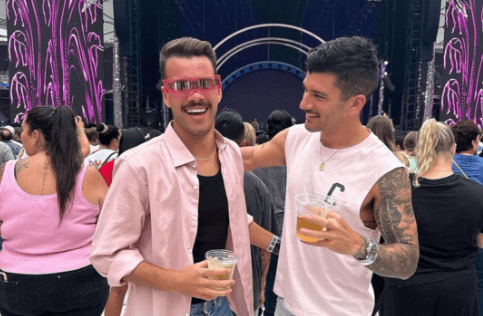
My bathroom vanity was an explosion of glitter and neon makeup. If I had been any more iridescent, I'd have been blinding.
I'd just finished putting together my look for the Mardi Gras parade, an event that – it's embarrassing and unconscionable to think of now – just a few years ago, I knew almost nothing about.
I didn't come out until I was 35. One year before that, I attended the parade for the first time.
"I think it's important to remember that Mardi Gras started as a protest, because we needed to create and affect change. People were beaten up by the police and arrested. And I am so proud of those people, and we owe a great deal to them," I was told by Dan Cunningham, a supporter of LGBTQIA+ and Aboriginal and Torres Strait Islander communities, who'd kindly invited me to march with him.
Watch: Disability community shines at Sydney Mardi Gras! Post continues below.
I'd had no idea - and I prickled with shame at the realisation.
We like to think of homophobia as something archaic that lives in the shadows of social outliers and bigots, and definitely not inside of us, but its roots stretch so far and wide it's impossible not to be touched by them.
Being gay wasn't formally legalised across Australia until 1994, via the Human Rights (Sexual Conduct) Act.
Prior to the late seventies, consensual sex between men was punishable by up to 14 years in jail; longer than the penalty at the time for rape. And, during the first Sydney Mardi Gras in 1978, 53 people were arrested and dozens more brutally beaten at the hands of police, before having their personal details published in The Sydney Morning Herald (who issued an apology letter in 2016).

Top Comments